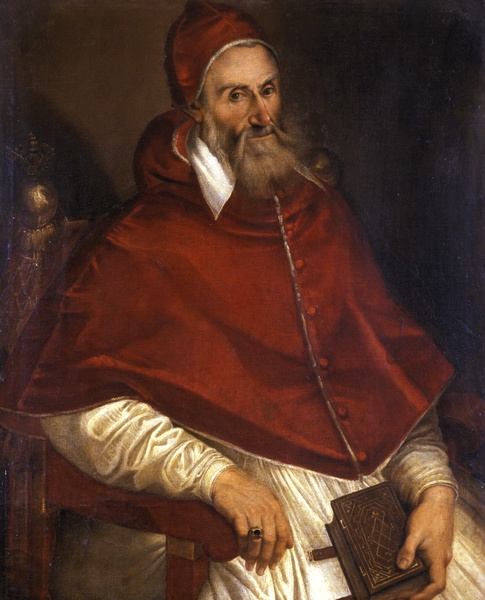Pope Pius IV
On this date in 1563 the Council of Trent held its final session.
Frye in The Double Vision:
In many respects the Cold War repeated the later stages of the situation that arose with the Reformation in the sixteenth century. Then, a revolutionary movement, at first directed mainly toward a reform of abuses in the church, showed signs of expanding and breaking open a tightly-closed structure of authority that claimed exclusive and infallible power in both spiritual and temporal orders. What was centrally at issue was reformation itself, the conception of a church that could be reformed in principle and not merely through modifying the corruptions that had grown up within it. The Reformers thought of the church as subject to a higher criterion, namely the Word of God, and as obligated to carry on a continuous dialogue with the Word in a subordinate position to it.
Established authority reacted to this movement as established authority invariably does. The Council of Trent gives an impression of passing one reactionary resolution after another in a spirit of the blindest panic. Yet the Council of Trent succeeded in its main objective, which was to persuade Catholics that post-Tridentine Catholicism was not only the legitimate descendant of the pre-Reformation church, but was in fact identical with it. The logical inference was the claim of a power of veto over the Bible, a position set out in Newman’s Essy on the Development of Christian Doctrine, where a historical dialectic takes supreme command in a way closely parallel to the contructs of Hegel and Marx. (CW 4, 173-4)

